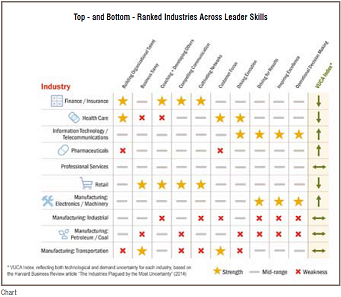Innovation within recruitment and talent development should gain greater momentum, widening its remit to drive change, improvement and forward thinking.
“Health is being ‘embedded’ in the growth story of the country as India charts an impressive growth curve that is being recognized at various global platforms.” -JP Nadda,Union Health Minister
Unlike a few decades ago, the Indian healthcare industry is attracting more and more companies looking to enhance their operations in the country, thereby creating a huge need for talented employees.
There are challenges ahead such as variation in health facilities between urban and rural areas, variation in public and private health services, and issues of regulation. Nevertheless, the industry is embracing infrastructural transformation coupled with high-end technological services and vital policy amendments and is targeting sustainable growth by 2030. Healthcare is expected to be one of the fastest growing sectors and in order to be a strong ecosystem it will need systemic changes supported by investor-friendly policies and collaborations.
Whilst most industries develop products and services keeping customer at the centre of everything, healthcare has traditionally been paternalistic in nature. However, the approach is shifting due to the changing nature of medicine, growing patient awareness and increasing penetration of the Internet. The industry is now talking about ‘Patient-Centered Care’, ‘Person-Centered Engagement’, and ‘Consumer Engagement’. In the move towards a patient-centric model, the healthcare workforce has a critical role in embracing this change and making the shift.
As patients become more informed, they are demanding uniform access to care and lower associated costs. Many countries are struggling to make incremental changes to address increasing costs, poor or inconsistent quality and inaccessibility to timely care, while other countries believe the only cure to this is a fundamental transformation of healthcare. Resolving these issues is a daunting task.
Development Dimensions International (DDI) is a leading talent management consultancy which specialises in supporting healthcare companies get ready for the future. DDI recently released its global research ‘High-Resolution Leadership’, which draws on assessment data of over 15,000 candidates for five leadership levels: frontline, mid-level, operational, strategic executive, and C-suite executive across 20 industries and 300 organisations.
One research finding (see the chart) looks across a mix of industries in relation with the core leadership skills/competencies. This detailed look at the leadership skill variation offers a high level perspective on each industry’s readiness to meet their unique business challenges. One key differentiation among industries is with respect to the degree of pressurest hey had experienced and how much technological and demand uncertainty faced. Harvard Business Review labelled these differentiators as the VUCA Index (Volatility, Uncertainty, Complexity, and Ambiguity) and we incorporated it in the cross-industry summary to add one more layer of nuance.
What came out very clearly as a driving force for healthcare leaders is that they are strong in building organisational talent, customer focus and driving execution which are all critical for the healthcare industry success.

Building organisational talent involves assessing the key strengths and gaps of current talent pipeline. Leaders who are strong in this area are able to determine the mix of talent required by the organisation to support current and future clinical, business objectives. The starting point is recruitment: leaders should attract and recruit internal and external talent to ensure that the organisation is appropriately staffed. They are required to initiate strategies to develop internal talent while balancing the effort with external hiring. Strong leaders target challenging developmental assignments that build individual confidence and organisational capability.
Customer Focus is a driving force behind strategic priorities and organisational processes. Leaders who are strong in this area make sure that the internal and external customer’s perspective is heard. They craft and implement service practices that meet customers’ needs. They encourage taking personal responsibility for satisfying customers as a value and believe that customer focus should be the organisation's highest priority.
Driving Execution is a crucial skill to have in order to translate strategic priorities into operational reality. Leaders who are strong in this area have the capacity to align communication, accountabilities, resource capabilities, internal processes, and ongoing measurement systems to ensure that strategic priorities yield measurable and sustainable results.
Healthcare organisations have most current leaders ready for building future talent and should continue to bolster this skill. If you think you are a healthcare professional who does not match the skillset, it is time to take immediate steps to remedy the deficiencies in this area to avoid severe risks for internal pipeline of future leaders for the organisation.
Let’s direct our attention now to THE GAP / Weakness of healthcare, comparing compared to other industries. The leaders in the healthcare industry lag other industries in being business savvy, initiating coaching and developing others. If you are a leader in a healthcare organisation this information gives you a competitive advantage as you an immediately start working to narrow that gap.
 How to Develop Workforce Skills
How to Develop Workforce Skills
Business savvy is a key skill needed to drive execution and customer focus. Leaders who lack this ability do not have the horse power to take the organisation from strength to strength when the organisation might demand 2X or 3X growth due to their sheer inability to understand their own business. This weakness will eventually build pressure on the top management as we find this layer of leaders lacking strategic depth and ability to execute strategy well. This competency needs to be developed through experiential learning and personal mentoring by top management of the organisation. Leaders need to demonstrate a keen understanding of basic business operations and of the organisational levers including systems, processes, departments and functions that drive profitable growth. Leaders who master this skill will be able to learn from their personal experiences helping them quickly evaluate business plans and processes to identify data or recommendations that need further investigation.
Coaching and developing others is a weak area for healthcare in comparison to other sectors like finance and retail. Today with the kind of manpower and scale of education in healthcare, we need leaders who are good at coaching and developing their teams, leaders who know how to provide development feedback and guidance to help others excel in their current or future job responsibilities. Leaders, who are strong in this area, are good at supporting the development of their subordinates. They do not limit their conversations to being transactional but conveying performance expectations and implications on a timely basis, helping subordinates evaluate misalignment, without ignoring the responsibility to support them in their development journey.
In conclusion, with no development or poor development focus, we will not have adequate number of leaders required to deal with the growth in the healthcare industry. Leaders will have to broaden their mindset and think beyond functional and operational areas. They might want to look at some macro level data like market drivers and customer trends to make informed decisions. Leaders might be good at leading their functions and departments, but should also look at development of team members by way of building skills over a period of time.
To accomplish these bold goals, healthcare organisations need to make informed hiring decisions based on solid diagnostic assessments and then guide their employee development journey. Incorporating research-based tools into selection and promotion processes will be particularly valuable for industries with weaker skill profiles.
The need to craft and implement a robust talent management process is crucial in the healthcare industry especially in the current environment. Dynamic organisations face greater risk of not having the talent they need. The leadership capabilities demanded by changing businesses are quite different and less common than those needed in more stable environments. Innovation within recruitment and talent development should gain greater momentum, widening its remit to drive change, improvement and forward thinking.
As the healthcare industry is evolving in India, managing talent is becoming more crucial to the success and sustainability of all healthcare organisations. DDI works closely with these organisations to help hire and retain exceptional talent, develop leaders, help them make confident decisions and identify potential talent for future.